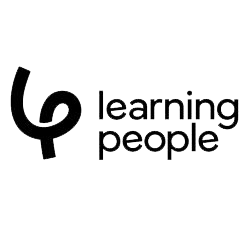What Skills do you Need to Become a Project Manager?

Project managers are essential to the successful delivery of projects from start to finish. The responsibility of a project manager involves leading an entire project through the stages of planning, controlling, executing and completion. Project management is an intricate profession, where a combination of skillsets is needed to solve a variety of challenges presented in projects and project teams.
To become a project manager, you need to be adaptable, whether it be working with different groups, situations or environments; a project manager must always deliver an appropriate solution. In line with project management certifications and institutes such as PMI, all of the essential project management skills will be discussed in this article.
Education pathways
There are several online project management courses that teach technical skills to students, as well as diploma courses, advanced diploma or certificate iii or certificate iv courses. Each discipline offers more in-depth training than the last. There are project management courses available in Wellington, Auckland and Bay of Plenty.
Recommended skills
The key attributes needed by project managers include both technical and soft skills. The ability to deliver projects on budget and on time as well as the effective management of team members, risk and clients are all fundamental values desired by recruiters. Below are the different skills needed to be a successful project manager.
Technical skills
Depending on which type of project management you wish to pursue, there may be job-specific project management skills required. Besides that, here is a list of the most common project management technical skills that are desired by employers.
- Knowledge of Project Management Software and Frameworks
- Financial Modelling and Cost Management
- Project Lifecycle Management
- Schedule Management
1. Knowledge of project management software and framework
Knowledge of commonly used project management tools such as Microsoft Office, Asana and Trello will assist project managers in the workplace by tasking and to be able to utilise teams during the project lifecycle stages effectively. Furthermore, the framework and methodologies such as ‘Scrum’ and ‘Agile’, also support the planning and tasking for project managers. A combination of framework and project management software will guide project managers throughout a project’s lifecycle.
2. Financial modelling and cost management
Every time a new project arises, a project manager must optimise cost efficiencies and benefits by undertaking financial modelling; to ensure the project does not go over budget and also to maximise all available resources as effectively as possible. A project manager should be able to optimise work hours and establish a key rationale for procurements and other expenses related directly to the project.
3. Project lifecycle management
An agile project manager will split a plan into specific segments via project lifecycle and task management techniques to minimise mistakes. Project lifecycle management will also create a roadmap containing all the phases and stakeholders that are involved at each given stage. Good project managers should also track and measure progress throughout the project lifecycle to optimise gains and resolve conflicts and issues that arise with predetermined risk management techniques.
4. Time management/scheduling
Scheduling management assists in the organisation and planning throughout the various stages of the lifespan of a project. Time scheduling can accurately map out public resources, tasks and stakeholders while setting specific and general schedules to keep everybody up to speed on the project. Scheduling software exists specifically for effective project managers.
Soft skills
There are a plethora of soft skills that active project managers possess. It is not just about managing finances or plans but also about managing people. Therefore some of the soft skills listed below include:
- Project Leadership Skills
- Communication Skills
- Problem Solving and Critical Thinking
- Teamwork
- Negotiation
1. Leadership skills
Project managers deal with a variety of teams and people amongst which they need to motivate, inspire, manage and support to meet deliverables within the project constraints. A project manager deals with many challenges, yet is always somebody to turn to for a solution. A skilled project manager must be a critical thinker and a problem solver to guide everybody with genuine commitment to achieving project goals as well as project success.
2. Communication
An essential key skill to possess, communication allows the best project managers to deal with various stakeholders within a project and will enable them to accurately convey information across several mediums such as email, reports or presentations. Generating the right impact and response for specific stakeholders and being able to use the right language and tone is a crucial part of any project manager’s job.
3. Problem-solving and critical thinking
When specific issues arise throughout the project, being able to formulate the best solution to address them is a vital skill of any project manager. Being able to see problems from different perspectives and finding an appropriate solution can save thousands of dollars in a big project.
4. Teamwork
A project manager must establish a team culture within project teams to allow the smooth operation of a project amongst its various stakeholders. Management amongst stakeholders can create friction between parties can result in efficiency and stunt growth and progress, which may result in delayed completion and can be a financial determinant.
5. Negotiation
Being able to arrive at the best possible solution for all parties involved is a crucial aspect of project management. Applying negotiation skills and using frameworks, (i.e. SWOT) can support project managers in reaching the best solution possible.
A project management career is a skill-intensive career that is suitable for people who thrive in high-pressure and challenging situations. The future demand and outlook for project management professionals are high, with job satisfaction and pay scoring very high. However, it can be equally challenging and extremely performance-driven.
Therefore a strong desire to succeed, upskill and gain project management experience and know-how in this industry will be essential. If you are a people person and enjoy the endless learning opportunities that project management presents, then this could be the career path for you.
Browse Results
CompTIA Project+
The CompTIA Project+ is perfect for anyone in tech wishing to gain the fundamental concepts to successfully manage small to medium-sized projects….

PMP Pathway
Why choose the PMP Pathway? Providing a senior level training in Project Management, plus the foundations of Scrum and Agile. Our PMP Pathway elevates your expertise in Project Management and widen your skill sets too. By completing this pathway, you’l…

PMP and Change Pathway
Why choose the PMP Pathway? Providing a senior level training in Project Management, plus the foundations of Scrum and Agile. Our PMP Pathway elevates your expertise in Project Management and widen your skill sets too. By completing this pathway, you’l…

PMI Agile Certified Practitioner (ACP)
Why choose the PMI ACP? The PMI Agile Certified Practitioner (ACP) course is a professional certification which works to enhance your ability to bring agility and self-sufficiency in project management. Agile projects involve self-empowered teams that…

CAPM Pathway
Why choose the CAPM Pathway? Providing a comprehensive introduction into Project Management, Scrum and Agile. Our CAPM Pathway enhances your career prospects and elevates your expertise to global Project Management standards. By completing this pathway…

CAPM and Change Pathway
Why choose the CAPM and Change Pathway? Providing a comprehensive introduction into Project Management, Scrum, Agile, and Change Management. Our CAPM and Change Pathway enhances your career prospects and elevates your expertise to global Project Manage…

AgilePM® Practitioner
Why choose the APMG AgilePM Practitioner? The Agile Project Management Practitioner is a widely recognised qualification that takes only 20 hours to complete. It enhances your employability through advanced Project Management skill development. With ne…

AgilePM® Foundation
Why choose the AgilePM® Foundation? The Agile PM® Foundation course is a professional certification designed to elevate your ability to approach Project Management with agility and self-sufficiency. Agile projects are characterised by self-empowered te…

Project Management Course
Are you an eager planner with a passion for organisation and a talent for leadership? Then project management could be the role for you. With positions in a range of industries, there are a wealth of opportunities for qualified project managers. Take y…

PRINCE2® Agile Practitioner
Why choose the PRINCE2® Agile Practitioner? PRINCE2® is a globally recognised project management methodology, and its adaptability lets you manage projects of all sizes, using industry best practice. The PRINCE2® Agile Practitioner course is an extensi…

ABC Scrum Master
Why choose the ABC Scrum Master certification? Scrum is a framework for effective product development and collaboration. Enrol in the ABC Scrum Master certificate to learn the role of a Scrum Master and the principles behind the Scrum Framework. This c…

Agile Project Management
Why choose the Agile Project Management certification? More projects are run using Agile methodologies than any other recognised framework, with demand for Agile-trained professionals constantly increasing. The Agile PM® Foundation course is a professi…

PMP and Change Management Collection
The PMP collection is for experienced project managers who are looking to validate their skills and document their knowledge. You will learn how to expertly plan projects, brief in and oversee tasks, and control budgets closely to show real value to th…

Certificate in Project Management
Learn how to execute projects from end to end Project management is a critical function of any organisation. Delays not only cause frustration, they cost valuable time and money. Therefore, a good project manager is critical to the running of any compa…

Certified Associate Project Management (CAPM)
The Certified Associate in Project Management is perfect for any stage of your career. From entry-level to the experienced, this course is set to develop your skills towards becoming a leading project manager. The CAPM certification documents that you…

CBAP | Certified Business Analysis Professional
Why choose the CBAP | Certified Business Analysis Professional? CBAP certification is an internationally recognised qualification that demonstrates a high level knowledge of business analysis. As a business analyst, this certification will enhance your…

CAPM and Change Management Collection
Stand out to employers with the ultimate collection of project management and change management certifications This collection aims to make individuals with no project management experience, ready to take on a role as Project Manager. When you finish t…

APM Project Fundamentals Qualification
Why choose the APM Project Fundamentals Qualification? In just 30 guided hours, you’ll gain a comprehensive understanding of Project Management language and its core principles, regardless of your prior experience. The APM Project Fundamentals co…

APM Project Management Qualification
Why choose the APM Project Management Qualification? The prestigious PMQ certification validates your Project Management knowledge, allowing you to excel in diverse assignments, from individual to large-scale capital projects. The APM Project Managemen…

Change Management Foundation
Why choose the APMG Change Management Foundation course? This APMG Change Management Foundation certification opens doors to the exciting field of Change Management, laying the groundwork for a successful career in this field. Become an influential tea…


